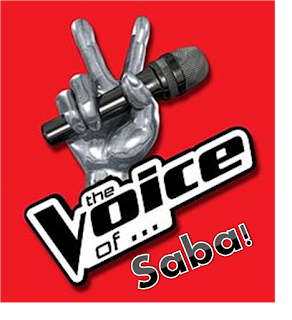'I’m frequently asked about the
narrative voice of the Dustlands
books....'
The creator of the Dust Lands trilogy, Moira Young, has answered a frequently asked question from fans below - why is the book told the way it is? And what exactly does Saba's voice consist of, and thus symbolise? Find out after the jump...
'Readers often refer to it as a dialect.
They want to know how I made it up, where it comes from geographically and why
I chose write the books in this way. Sometimes they ask about my disregard for
the rules of punctuation, grammar and spelling. The way that most characters
speak in these books is not meant to be a specific regional dialect of Canada
or the US or, indeed, anywhere else.
I
don’t call it dialect. I call it Saba’s voice. The simple fact is that I
couldn't find my way into her story until I found her voice. My first
attempts at telling it had Saba as a third person narrator. I used quotation
marks for dialogue and proper punctuation and sentences. I tried one thing,
then another, working at it for over three years. I began to have the first
inklings of her voice when I switched to the first person. At that point, I was
thinking that Saba would be around 8 or 9 years old at the beginning of the
story. That first person experiment turned out to be a wild ride with
punctuation (there was very little; it was almost stream of consciousness) and
language. That young, breathless voice was bursting with energy and certainly distinctive,
but it was challenging for a reader to follow. And, eventually, I realised it
didn’t work for the book, so that version of Saba was set aside. But what that
experiment did was to move me out of what I believed to be my narrative voice comfort
zone.
Then
two things happened. I raised her age to 18 and I stopped trying to control the
story; I let my unconscious take over. That’s when Saba roared to life and started
to speak. She began to tell her story; simply, directly, in her own way, using
her own words. Mainly, I just wrote it down. It wasn’t until some time after
I’d finished that I was able to distance myself enough to analyse what I’d
done.
It’s told in Saba’s voice, in the present tense,
so we are inside her head at all times. She is our only window onto her world. To
use quotation marks with such a voice inserts a supra narrator and the reader would
immediately take a step back from Saba.
I
discovered that her spare, dry, fractured language mirrors her spare, dry,
fractured world. The rough poetry of her voice, the preference for dialogue over
description, the rhythms and beats and phrases of the text, all come from my
former lives as an actor and opera singer. I speak aloud as I write. On the
page, I set down words, phrases and sentences
in a way that, hopefully, communicates my experience of the narrative to the
reader. Left to my own devices, my books would be the size of a telephone
directory for a major city, with twenty lines of text on each page. The
realities and practicalities of book production mean that my text always has to
be pulled together and tightened. The finished book is never presented exactly
as I intend, but usually it’s close enough. And I’m getting better at
second-guessing what my editor will say and making the changes myself!
I’ve always loved regional vocabulary
and mispronunciations and idiosyncratic turns of phrase. I’m a word magpie. I like
to eavesdrop and take notes. English is a constantly changing language. People
living in the future will not speak it as we do, just as we don’t speak as
people did in the past. As our world changes, our language changes too. Saba’s
use of words and ways of expressing herself shift and grow with her experience
of the wider world. In his brilliant post-apocalyptic
novel Riddley Walker, Russell Hoban
offers the most completely realised narrative voice from a future world. It’s
magnificent and daring and I wish I had written it.'
~Moira Young, June 2013
What are your thoughts on the narrative structure of the Dust Lands? Let us know in the comments below or on Twitter!


No comments:
Post a Comment